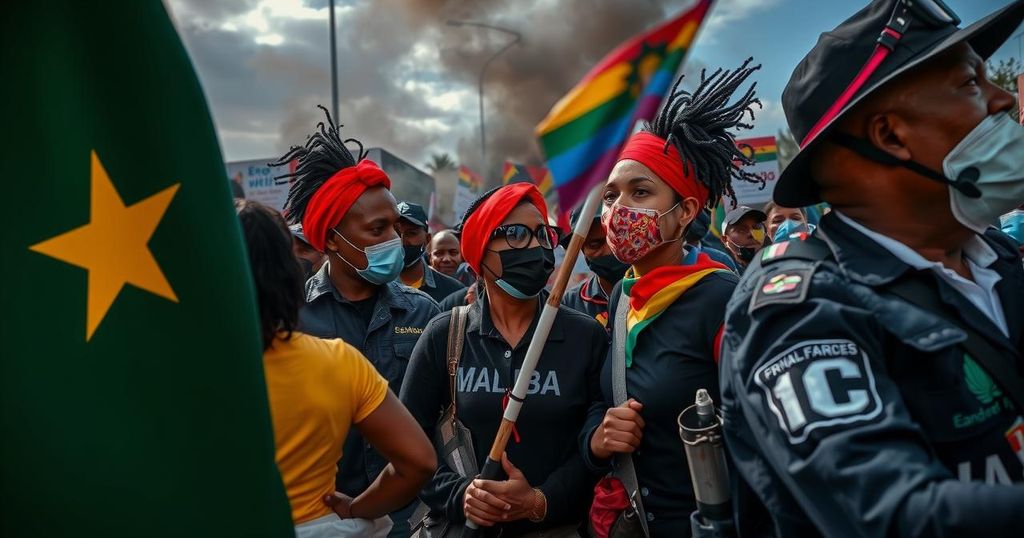Mozambique Government Bans Protests Amid Rising Post-Election Violence
Following Mozambique’s disputed presidential election, protests have been banned due to escalating violence that has resulted in numerous deaths. The ruling Frelimo party’s victory, coupled with accusations of voter fraud from the opposition, has led to significant unrest in the capital, Maputo. Interior Minister Pascoal Ronda has condemned the demonstrations as terrorist acts, while the government has restricted internet access to suppress dissent.
Mozambique has observed significant unrest following the controversial presidential election held last month, in which the ruling party, Frelimo, was declared the victor. The government has now prohibited protests due to escalating violence, which has resulted in numerous fatalities and injuries. Demonstrations erupted after the announcement of the election results, with the opposition alleging widespread electoral fraud. Interior Minister Pascoal Ronda condemned the protests, labeling them as acts of terrorism and calling for public cooperation against such civil disobedience. Furthermore, reports indicate a clampdown on internet access as a measure to limit dissent and maintain order.
The post-election situation in Mozambique is marked by escalating tensions resulting from the disputed electoral process. Frelimo has maintained a stronghold on power since the country’s independence in 1975, and this latest election has been challenged by opposition figures. Violence erupted with protests; many citizens express frustration over perceived electoral injustice, exacerbated by reports of violence against opposition activists. The declaration of protests as acts of terrorism reflects a dire attempt by the government to quell dissent and stabilize the political landscape amid accusations of electoral malpractice and human rights abuses.
The situation in Mozambique remains tense as the government has enacted a ban on protests amid ongoing violence and allegations of electoral fraud. The ruling party’s firm stance against civil dissent, along with restrictions on communication, emphasizes an urgent need for dialogue to address the political grievances faced by various groups. As the nation grapples with these challenges, the international community has been urged to closely monitor developments and advocate for peaceful resolution and respect for human rights.
Original Source: www.bbc.com




Post Comment